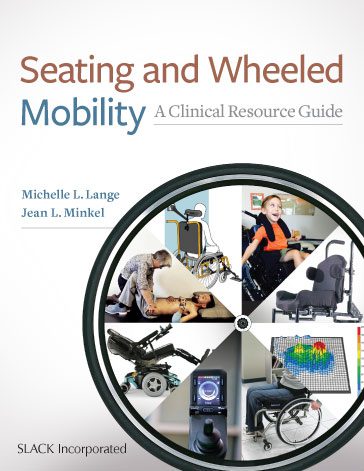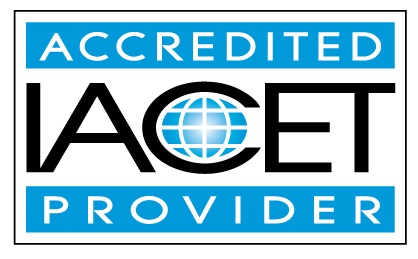
Michelle L. Lange and Jean Minkel have designed a text to support occupational and physical therapists, complex rehabilitation technology suppliers, and even third-party payers who are interested in wheelchair seating and mobility assessment and applications. Seating and Wheeled Mobility provides a wide spectrum of information from foundational information for those practitioners who are new to the field to in-depth, population-specific information for practitioners who perhaps have not worked with a particular population in the past.
The book, Seating and Wheeled Mobility: A Clinical Resource Guide presents clinical assessment considerations when working with a person with a disability who may need wheelchair seating for postural support, skin integrity, or a wheelchair base to best meet dependent or independent mobility needs.
Information sharing, opportunities for demonstration and trial, and patience on the part of the clinician working with the person with a disability are all critical precursors to the actual process of making equipment recommendations.
Seating and Wheeled Mobility is divided into sections, each addressing a different area of clinical practice.
- The first section is an in-depth presentation of the assessment process and the critical understanding of pressure management needed by the clinical team when working with a client population who rely on wheeled mobility.
- The second section focuses on postural support. Also included is a completely updated method to measure and describe the seated person and related support surfaces needed when recommending a device.
- The third section lays the foundation for clinical decision making around the assessment for and application of the most appropriate wheeled mobility device.
- The fourth section provides in-depth clinical applications for each category of mobility devices. Also addressed is proper documentation to assist in the funding of these devices.
- The fifth section provides population-specific information regarding the clinical application of position, pressure management, and functional mobility as it applies to the pediatric, geriatric, and bariatric populations, as well as persons with both degenerative and complex neuromuscular impairments.
- The last section presents additional considerations when working with persons who are aging with a disability, environmental assessments, transportation, and the application of standards.
Use promo code, CONV25 for a 20% discount off the book when purchased directly from SLACK

